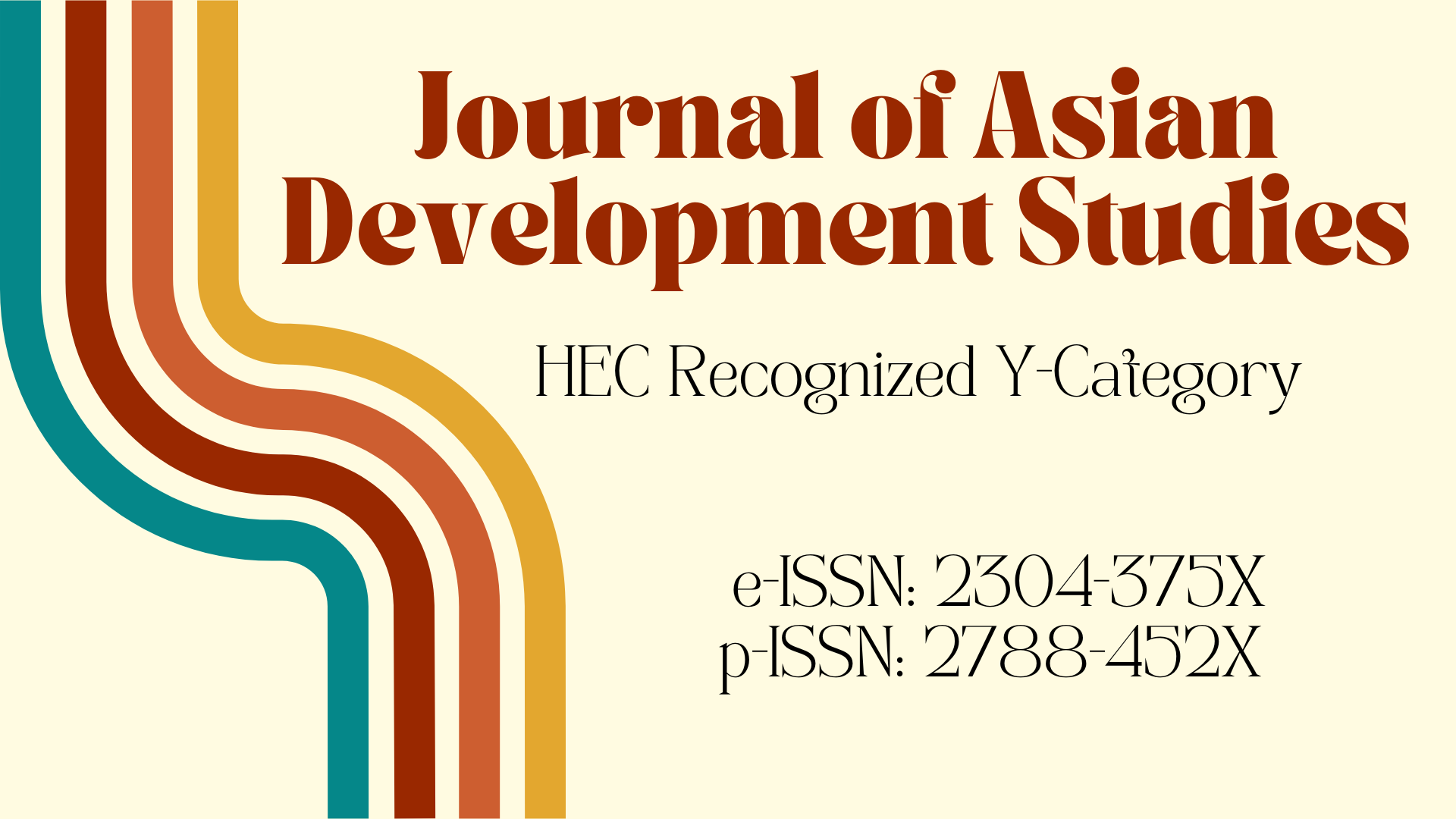Parental Emotional Abuse and Psychological Well-Being: The Role of Expressive Suppression as a Mediator and Cognitive Reappraisal as a Moderator among Adolescents in Pakistan
DOI:
https://doi.org/10.62345/jads.2025.14.1.41Keywords:
Parental Emotional Abuse, Psychological Well-being, AdolescentsAbstract
There is substantial literature on the effects of abuse on adolescents' well-being but limited research on parental emotional abuse in Pakistan. This study aims to explore the impact of parental emotional abuse on psychological well-being, with cognitive reappraisal as moderator and expressive suppression as mediator, among adolescents in Pakistan. A cross-sectional correlational research design and purposive sampling were used to collect data from 384 adolescents (M 14.66, SD = 1.71). The study comprised three questionnaires, i.e., an emotional abuse questionnaire, a psychological well-being scale, and an emotional regulation questionnaire (to measure expressive suppression and cognitive reappraisal). Results show a significant positive relationship between parental emotional abuse and expressive suppression, while parental emotional abuse was negatively and significantly associated with cognitive reappraisal and psychological well-being. A significant negative association was found between expressive suppression and cognitive reappraisal. Additionally, Hayes Process 4.1, model 4, showed that expressive suppression significantly mediated the adverse effects of emotional abuse on psychological well-being. Furthermore, Hayes Process 4.1, Model 1 showed that cognitive reappraisal moderated significantly the negative impact of parental emotional abuse on psychological well-being. The study emphasizes the need for increased awareness among Pakistani parents about treating children kindly, promoting psychological help-seeking behavior in adolescents, introducing relaxation exercises, and encouraging cognitive reappraisal skills.
Downloads
Downloads
Published
Issue
Section
License

This work is licensed under a Creative Commons Attribution 4.0 International License.
License Terms
All articles published by Centre for Research on Poverty and Attitude are made immediately available worldwide under an open access license. This means:
- everyone has free and unlimited access to the full-text of all articles published in Centre for Research on Poverty and Attitude's journals;
- everyone is free to re-use the published material if proper accreditation/citation of the original publication is given.




